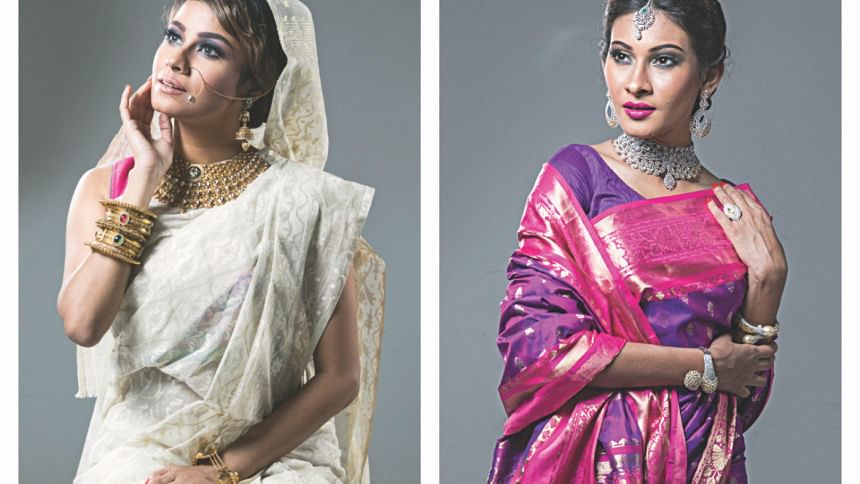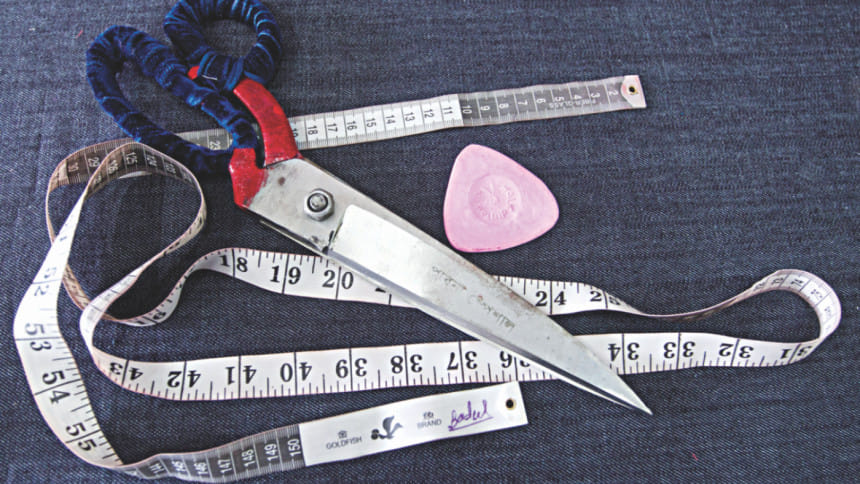Surviving the test of time: Of shops and legacies

A CULINARY EMPIRE
Long before he became a 'darwan' at Viqarunnisa Noon School and College, he used to work as an apprentice under one Muslim Miah, a chef for the Nawabs of Murshidabad. In 1947, he arrived in Chattogram. It was, in fact, not before 1965, when he joined the school; and the following year, he started making snacks for the canteen.
His catering service also started that year on a small scale.
And the rest, as we say, is history — Md Fakruddin Munshi created a brand that is familiar to everyone in Dhaka.
Today, the Fakruddin empire includes a restaurant chain, a catering service, and even a convention centre. The founder is long gone, but his future generations not only retained, but also expanded on the legacy.
Abdul Khalaque, a grandson of Fakruddin, is now the managing director of the enterprise. “Look after this business, and slowly make it bigger,” he remembers his grandfather saying to his children. But did Fakruddin himself live to see the immense success of what he had created?
Just two years after his death, the catering service bagged a high profile order of cooking some items, such as its signature kachchi biriyani, for a royal wedding in Jordan. A number of other prestigious endeavours and achievements, both local and foreign, followed.
The restaurant chain too, came much later. The first branch, located in Gulshan, was established in 2005. And after that, with many more outlets, the brand became a household name.
Indeed, many of us knew about Fakruddin prior to that, but one may argue that the restaurant chain largely increased the brand's visibility and hence, its prominence. The chain has also chartered into international territory, with a franchise in Singapore.
Khalaque, the third generation businessman, eyes more opportunities in the horizon. “We are planning to open a Fakruddin app. We are also looking into the frozen foods market,” he informed.
When he was still a student, Fakruddin, his grandfather, once gave him a gold chain and said, “Naati, continue with your studies, but learn this trade too. What we have has come from a lot of hard work; carry it forward.”
And forward it went, to become what it is today.

TAILORED TO SERVE GENERATIONS
Bashir Uddin's tailoring and fabrics shop was first located in Patuatali. But the outlet has been in New Market since the 1950s, a time when New Market was indeed new!
Shopping malls have eventually mushroomed all over the city, but during that time, New Market reigned supreme. Till this very day, the centre attracts shoppers from all walks of life.
New Market was home to a wide variety of shops, many of which are still in business today. And a handful of them hold rich legacies and boast iconic brand names.
Undoubtedly, one of them is Bashir Uddin Tailors and Fabrics. The shop, which makes panjabis, Mujib coats, sherwanis, et al, has been serving generations of customers. It is not uncommon to see, for example, a father bringing his son to the shop, thus extending the brand's customer loyalty to the next generation.
“Back in the olden times, there were not many prominent names in this sector,” says Md Harun, one of the grandsons of Bashir Uddin, who is currently running the business with his brother. But nostalgia and legacy alone do not contribute to keeping a business alive. “You have to keep up with trends and understand and satisfy the wants of customers,” he commented.
And of course, there is the sense of familiarity too. Many among the staff have been with the shop for numerous years. For example, Md Nurul Amin Khan, the 'master' tailor, has been working at Bashir Uddin's for many decades now.
Now an elderly man, he had once worked alongside Bashir Uddin himself. “He was a very warm-hearted person,” Khan recollects. “Till this day, old customers tell me about Bashir Uddin's friendly nature. He never failed to serve customers with a smile.”

COLLECTORS' CORNER
Salam Stamp Centre is a highly reputable name among collectors. The founder, Md Abdus Salam, started an outlet called Books and Books in 1961, but moved on to fully specialise in philately, the collection and study of postage stamps, a year later. And hence Salam Stamp Centre was born.
Abdus Salam's elder brother introduced him to philately; collecting stamps was his hobby since childhood. And he pursued this passion wholeheartedly, becoming a revered figure in philately. So much so, he was one of the founders of Bangladesh Philatelic Society (BPS), which was formed in 1972, only a few months after our victory in the War.
His son, Syeed Bin Salam, professional philatelist at Salam Stamp Centre, is now carrying the torch.
“I began developing a friendship with the customers,” he said. “Collectors may comprise a diverse mix of people from different walks of life and of different countries, but they sort of become equals and united by a common interest or hobby.”
“Moreover, they are often very knowledgeable. These qualities really attracted me to this field. In this profession, there is the business side of things, plus there is also the personal satisfaction that one seeks.”
But of course, he had to put in a lot of effort too. To master the business of philately, one needs to be in a continuous pursuit of knowledge. “Ask a lot of questions. You will never be able to learn anything if you do not have an inquisitive mind,” his father always used to say.
“But we were quite scared of him!” he admits.
Salam Stamp Centre is not just about stamps, though. The son diversified into banknotes, being one of the pioneers in this field. As the child of a philatelist, Syeed has seen stamps all his life. And he grew up to walk in the footsteps of his father, to continue the legacy.
He says, “It is family tradition. And our family's attitude is that it must go on, no matter what. We are determined about that, through thick and thin. At any cost, the shop must not shut down.”
ALL THAT GLITTERS
It all started with Nittaya Gopal Roy as a jeweller in the 1900s at Wari. Today, the Jarwa House story spans four generations and a collective history of over a century. Being in the market for such a long time, the brand has become a favourite among jewellery shoppers and afficionados.
The second generation strongly boosted the business. For example, S C Roy, one of the sons, was a reputed craftsman, and offered customers intricately designed jewellery. Meanwhile, his wife, Lilaboti Roy, was an expert in the artistry of making jewellery with pearls. In fact, so extraordinary was her work and so scarce was this skill that the family had once enjoyed a level of monopoly in this field.
Moving on with time and the demand, in 1984, S C Roy and his son Badal Roy (the current managing director of Jarwa House) stepped out of Wari to open a flagship store at Elephant Road.
“My father was a little unconvinced of the high budget the showroom would require,” Badal, the third generation jeweller, remembers. “But I wanted to be bold and build an extraordinary retail outlet and make a mark.”
And the family continued to prosper. Today, Jarwa House operates three shops: in Gulshan, Dhanmondi, and one in Chattogram.
“Being honest, providing excellent customer service, and being forward-thinking in terms of designs and trends — we never compromised in these three issues, and I believe that the success of Jarwa House largely comes from that,” Badal added.
He is grooming up the fourth generation. “Both my son and daughter have been trained in gemmology, acquiring valuable relevant degrees from abroad,” he informed. “They are involved in the family business. I am here to show them the ropes to carry the legacy forward.”
Photo: LS Archive/
Sazzad Ibne Sayed/Jarwa House

 For all latest news, follow The Daily Star's Google News channel.
For all latest news, follow The Daily Star's Google News channel. 



Comments